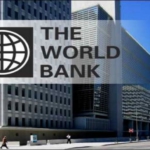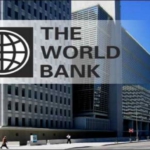
Ghana’s banking sector in 2024–2025 saw strong asset growth and improved capital, the World Bank has stated.
However, the high credit risks and a focus on government securities limited private sector lending.
Overall, the World Bank said the performance of the banking sector in 2024 indicated a gradual recovery from the macroeconomic challenges faced in 2022.
“Developments from 2022 to 2025 were marked by strong asset growth, a pronounced shift toward liquidity and government securities, persistent asset quality challenges, and cautious lending. These trends were deeply interlinked, with macroeconomic conditions, risk perceptions, and policy responses shaping the sector’s evolution and its role in supporting the broader economy”, it alluded.
Banks Favoured Government Securities
Nonetheless, the banks overwhelmingly favored government securities, and by early 2025, over 99% of bank investments were in government securities, with the share of short-term treasury bills rising sharply from 26.3% to 40.3%.
According to the Bretton Woods institution, the preference for treasury bills over longer-term securities reflected concerns about duration risk and policy uncertainty, as well as the attractive returns offered by high T-bill rates—consistently above 26%.
The World Bank said this investment strategy had several implications.
First, it contributed to the crowding-out effect, as banks’ preference for government securities reduced the availability of credit for the real economy, limiting support for inclusive growth.
Second, it shaped profitability as banks maintained a stable Return on Assets (5.6%) and a high average Return on Equity (32.2% in half-year 2025), but these returns were driven mainly by safe assets rather than organic credit expansion.
It warned that the high Non-Performing Loans continued to constrain the sector’s ability to grow capital organically.
Regulatory Front
On the regulatory front, the World Bank said the sector’s capital adequacy improved, with the Capital Adequacy Ratio (CAR) rising from 13.6% in February 2024 to 15.9% in March 2024, and stabilising at 14.3–14.4% by February 2025.
However, some banks remained undercapitalized, facing pressure ahead of the expiry of regulatory forbearance in December 2025.
- President Commissions 36.5 Million Dollars Hospital In The Tain District
- You Will Not Go Free For Killing An Hard Working MP – Akufo-Addo To MP’s Killer
- I Will Lead You To Victory – Ato Forson Assures NDC Supporters
Visit Our Social Media for More




